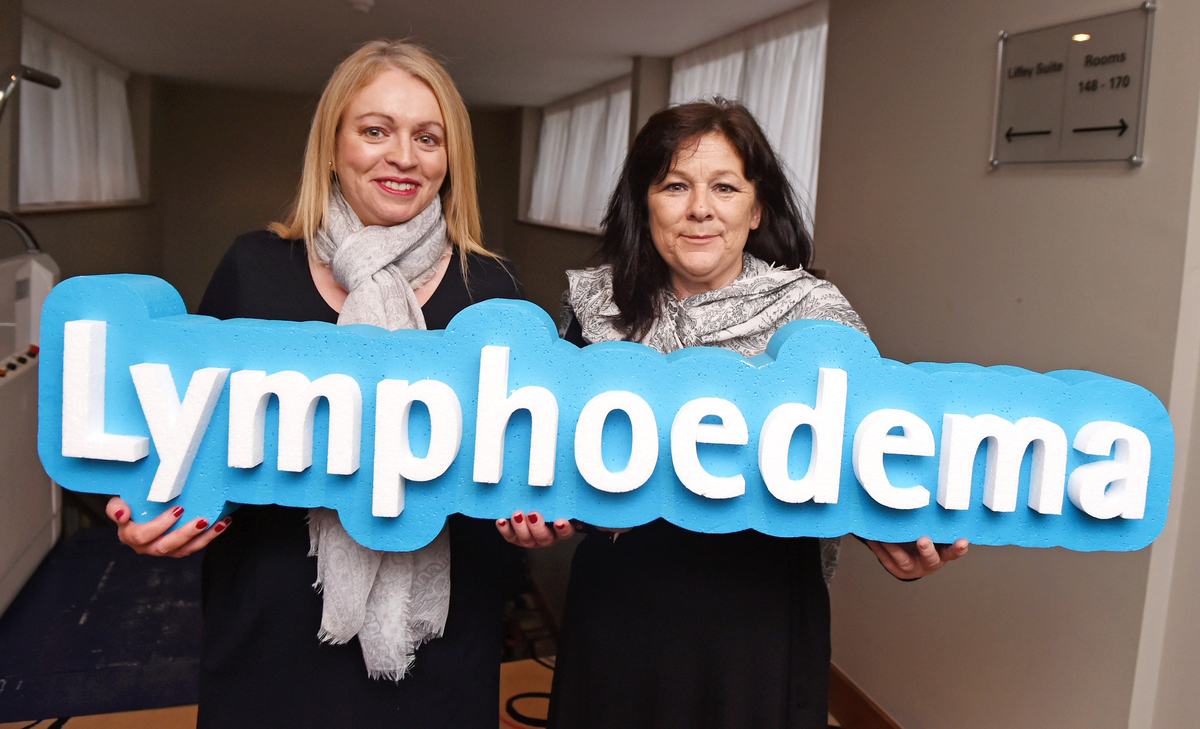

Awareness
Lymphoedema Awareness Month March 2016
Picture above:Joni Meskell from Adare, Co Limerick and Bernie Traynor, Kilmainham, Dublin 8 pictured at Lymphoedema Ireland’s open day marking the start of Lymphoedema Awareness Month during March.ENDSPicture credit: Clodagh Kilcoyne Lymphoedema Awareness Month March 2016
March is Lymphoedema Awareness Month, the aim of which is to highlight the condition for those who may be at risk, reach-out to those who may be living with the condition and feeling isolated and alone, and raise awareness of Lymphoedema within the medical community. Lymphoedema Awareness Month March 2016
Imagine having to spend two hours a day performing manual lymphatic drainage on your 5 year old child, or taking an hour every morning to put on toe to hip pressure bandages? Or living in fear that you’ll get an infection that results in you being admitted to hospital on IV antibiotics for three weeks. Or how about the condition dictating the clothes that you wear and the places you go? This is the reality for people living with Lymphoedema.
Lymphoedema occurs when the lymphatic system fails to function causing persistent swelling and can affect any part of the body. Persons may be born with Lymphoedema (primary) or develop it (secondary) because the lymphatic system has been damaged.
There is no cure for Lymphoedema. It is a progressive disorder that can have a devastating impact on patients’ lives. However, if diagnosed and treated early by an experienced specialist, the extreme swelling can be controlled and reduced, infection prevented and the range of movement of the affected area can be improved to limit the extent of the disorder and the impact it has on the life of the patient and their family.
Approximately 15,000 people in Ireland are estimated to have Lymphoedema and the numbers are rising, with over 1,200 developing Lymphoedema each year following treatment for cancer.*

Joni Meskell from Adare, Co Limerick who suffers with primary lymphoedema in both her legs.
Picture credit: Clodagh Kilcoyne
Lymphoedema Awareness Month will also highlight the ongoing lack of standardised services and referral pathways, as well as the unequal distribution of services and supports available throughout the country. Despite securing a meeting with the Minister for Health last year, the situation for lymphoedema sufferers has not improved.
According to Patricia Murphy, Chairperson, Lymphoedema Ireland, “People with lymphoedema are contacting us every day seeking advice on how to cope with their condition. It is such a distressing illness to live with and the common theme in these interactions is that people living with lymphoedema cannot access services or the medical supplies they need to ease their pain.
“Whilst Ireland has an excellent record for positive cancer treatment outcomes, there seems to be no recognition of the fact that more and more people will develop lymphoedema as a result. In the areas where limited public services for people with lymphoedema exist, they are fragmented, and referring is inconsistent and under-resourced. Not to mention the difficulty people have in getting the correct diagnosis in the first place.”Dr Michael O’Leary, Consultant Gynaecological Oncologist, Galway University Hospital said, “If we had a treatment pathway for people presenting with lymphoedema, we would help in the control of the condition. Then we could help sufferers live with lymphoedema without ending up back in the acute hospital system fighting infections, which could have been prevented. The psychological and emotional impact of lymphoedema on sufferers would also be alleviated if treatment was readily accessible and available.”
Visit www.lymphireland.com for news and updates about Lymphoedema Awareness Month events taking place throughout March. Find Lymphoedema Ireland on Facebook or follow on Twitter @lymphireland.














